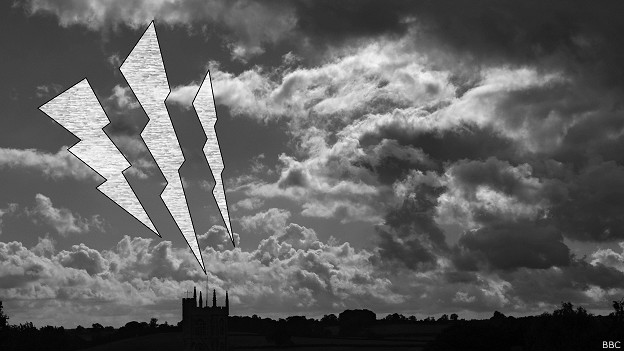To steal someone's thunder 竊為己有

Are you afraid of lightning and thunder?
今日小常識
The spark of lightning can reach over five miles in length and can raise the temperature of the air by 50,000 degrees Fahrenheit. Lightning doesn't only occur in thunderstorms, but can also happen during intense forest fires, volcanic eruptions and even snowstorms. One of the most dangerous places to stand during a thunderstorm is under a tree, and talking on the phone isn't a good idea either!
雷電的閃光可長達5英里同時可提高氣溫華氏 50000 度。閃電并不只發(fā)生在雷雨之際,也會發(fā)生在非常嚴重的森林火災,火山爆發(fā)和甚至暴風雪期間。在雷雨來臨之際,一個最危險的地方就是站在樹下,另外使用電話也不是一個好主意。
今日短語
所謂偷走別人的雷聲 steal someone's thunder, 實際上意思是竊取別人的成果和榮譽從而達到利己的目的。
例句
Sam stole my thunder when he said he'd done all the work. It's not true – I did most of it!
Please don't steal my thunder by announcing your engagement tonight. I want to tell everyone that I'm pregnant.
I was telling a joke and he just interrupted me to tell a different one. He always steals my thunder.
請注意
你知道 thunder 和 lightning 這兩個詞的區(qū)別嗎?前者意思是雷鳴;后者的意思是閃電。
例句
I enjoyed watching the storm last night—I managed to take photos of the lightning. But my dog hid under the table—he’s terrified of the thunder.